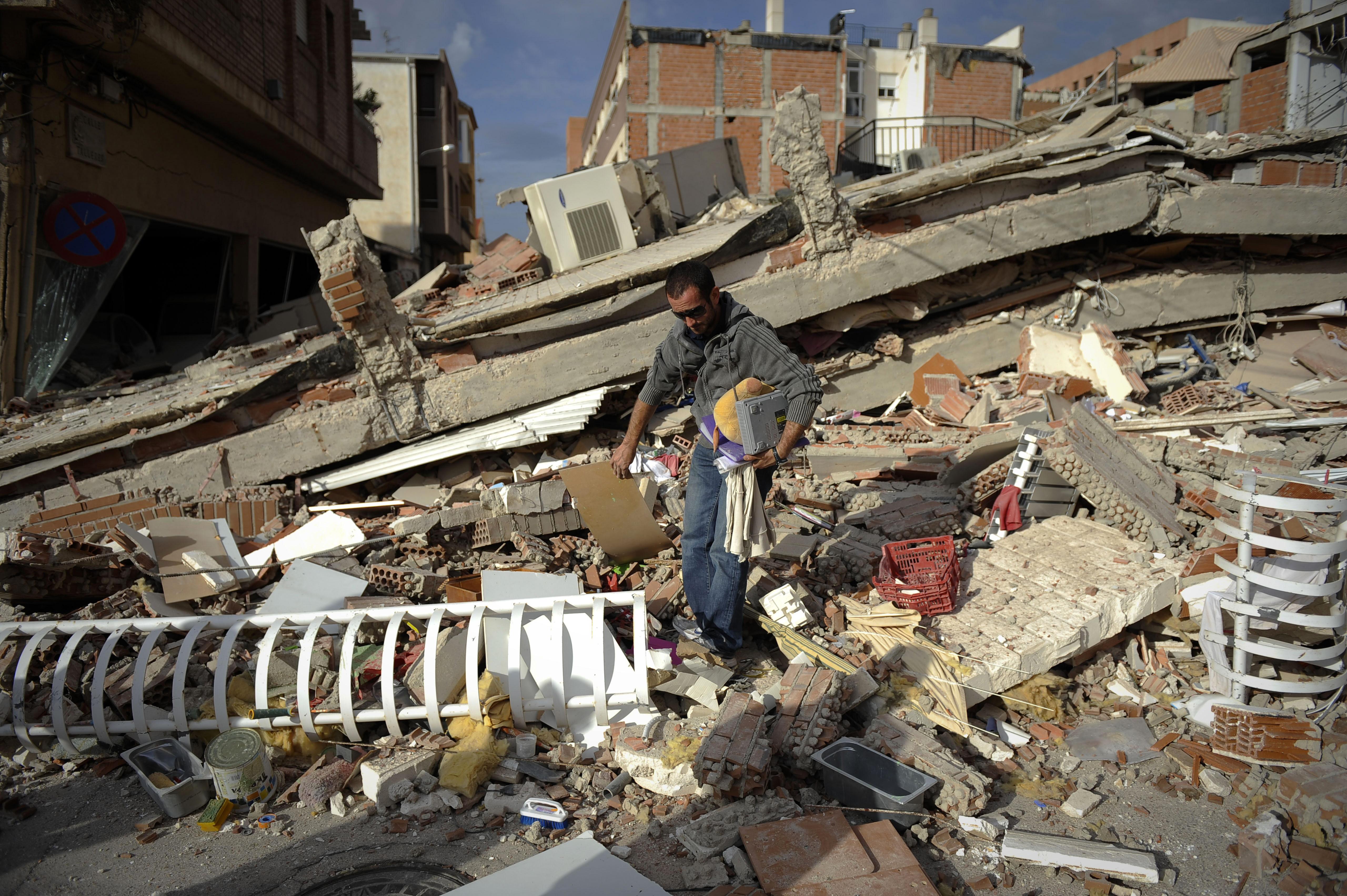A study published Sunday in the journal Nature Geoscience indicates that human activity triggered a deadly earthquake in southern Spain last year.* Meanwhile, in Italy on Monday, six scientists and a government official were sentenced to six years in prison for a deadly earthquake last year that they played no role whatsoever in triggering.
Let’s start with the Spain quake, a magnitude 5.1 that hit Lorca last year,* killing nine and injuring hundreds more. We’ve known for years that human activity could trigger small quakes under certain circumstances. But a new study led by Pablo Gonzalez of the University of Western Ontario provides fresh evidence that humans can trigger surprisingly large, deadly quakes as well. Using satellite data and computer models, Gonzalez and his team linked the quake to the removal of huge amounts of groundwater in the region for irrigation. As the city and surrounding area sucked fresh water from the ground, the water table dropped by some 250 meters since 1960.
It’s not that the quake would never have happened on its own. As with any other temblor, the root cause was tectonic pressure, built up over decades or centuries. But the absence of groundwater likely hastened the event. More importantly, it seems to have led to an unusually shallow quake, centered less than two miles beneath the earth’s surface—just one-third the depth that would have been expected otherwise. That helps explain why a 5.1 magnitude quake caused such extensive damage.
The researchers were careful not to extrapolate too broadly from the finding. But it is sure to play into debates about the potential risks involved in geoengineering and fracking. (Fracking itself is considered unlikely to trigger damaging quakes, but it requires disposing of liquids in deep wells, which some studies have linked to earthquakes.
In an odd coincidence, Gonzalez’s paper was published online the day before an Italian court found seismologists guilty of manslaughter for pronouncements that gave residents a false sense of security ahead of a 6.3 earthquake that killed 309 in L’Aquila in 2009. Following a conference of the National Commission for the Forecast and Prevention of Major Risks a week before the quake, a government official assured the public that seismic activity in the region posed “no danger.” Prosecutors alleged that this pronouncement led people to stay in their homes when the first tremors began rather than fleeing before the worst of the shaking.
The verdict was condemned by scientists around the world, several of whom noted that the seismologists themselves never publicly said there was “no danger.” But prosecutors pointed out that they didn’t immediately refute the statement when it came out. According to the BBC, a lawyer for the defense called Monday’s verdict “hasty” and “incomprehensible.”
*Correction: This post originally misidentified the year of the Lorca earthquake. It was 2011, not 2009.
